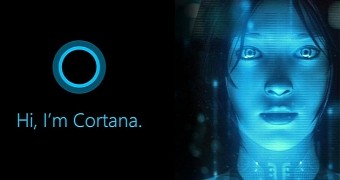Microsoft and Intel are working on making Cortana even more powerful and, in the future, the two companies plan on making the personal assistant able to even turn on your computer.
Intel reveals in a lengthy post about its collaboration with Microsoft that Cortana is one of their key focuses right now, and in the future, using what the companies describe as far-field speech recognition, users should be able to power on their PCs by simply calling the digital assistant by name.
In other words, you can easily shout “Hey, Cortana” to your PC from across the room and have Windows 10 booting. There is no information on the range just yet, but as long as the digital assistant can hear you, everything should work correctly, so expect 5 to 10 meters to be supported anyway, especially in quiet environments.
“We see a world of opportunity with artificial intelligence as well. Our engineers have been working closely with Microsoft to add far-field speech recognition and improved voice activation to PCs, making them much more intuitive,” Intel explained in the post.
“Soon, you’ll be able to speak to your PC from a distance and access all of your information on the device and in the cloud. You’ll also be able to wake up the PC from modern standby, whether open or shut, with a simple phrase, ‘Hey Cortana.’”
New Cortana features
Microsoft is already working on new Cortana features, and the latest Windows 10 build brought support for new voice commands. The personal assistant now has even more control of the music you’re listening to, but at the same time, it can also shut down a computer if you want it.
On the other hand, making it possible to start a computer with Cortana requires more advanced tech because the digital assistant needs to be in an always-connected mode when the system is on standby, and this could obviously lead to an impact on battery life and performance.
But without a doubt, this feature should arrive on Windows 10 devices at some point in the future and since Microsoft and Intel are already talking about it proves that we shouldn’t wait too long before this happens.

 14 DAY TRIAL //
14 DAY TRIAL //